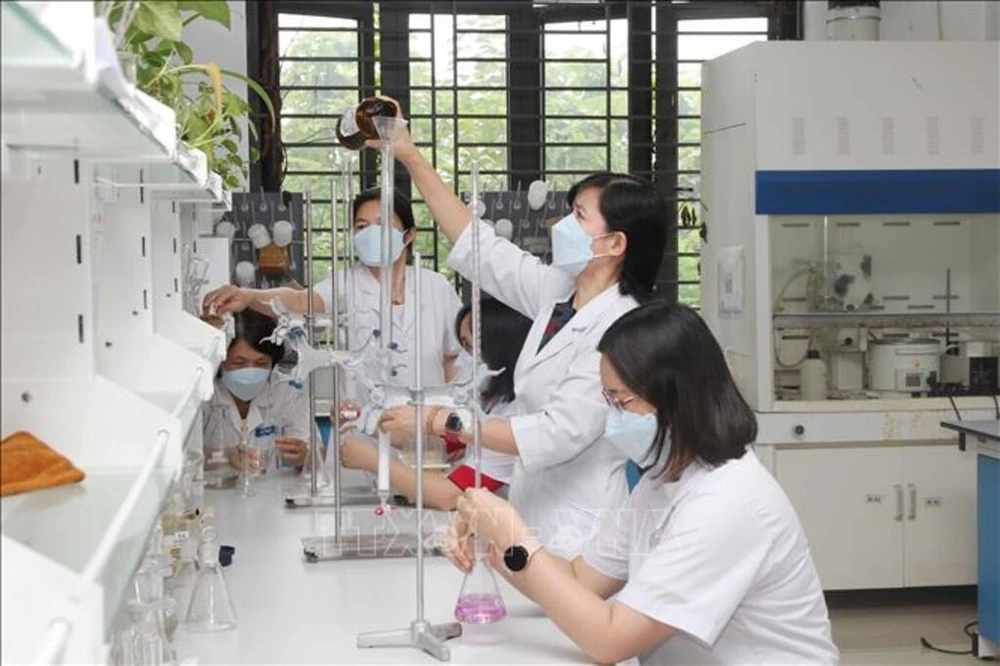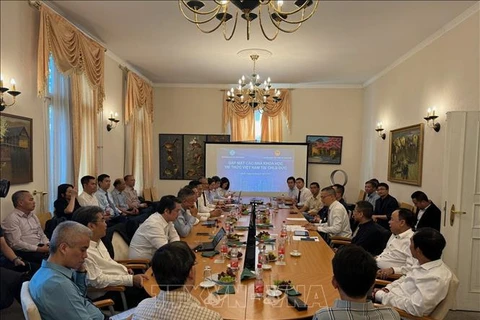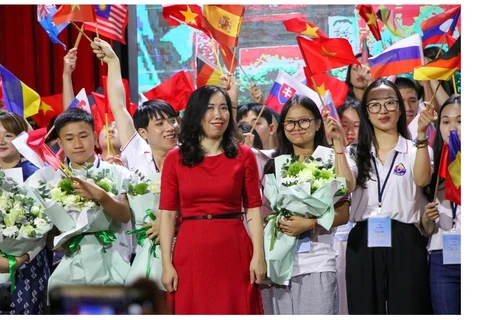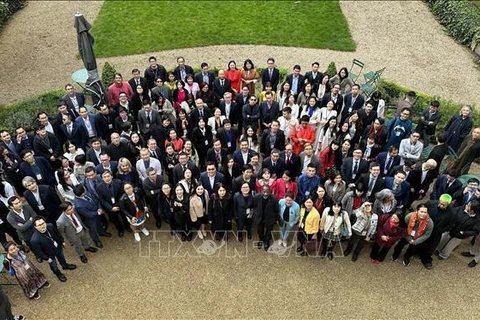
Hanoi (VNA) – The Government has issued a resolution outlining its action programme to continue building and elevating the role of intellectual workforce for national rapid and sustainable development in the new era.
The document assigns key tasks to various government officials, including ministers, heads of ministry-level and Government agencies, chairpersons of the People's Committees of centrally-run cities and provinces, and directors of the Vietnam National University (VNU) – Hanoi and the VNU-Ho Chi Minh City.
Their focus will be on raising awareness of the critical role intellectuals play in national progress; renovating training and rewarding of intellectuals, with a particular emphasis on talent retention; fine-tuning existing laws, mechanisms and policies; increasing resources to develop a proactive and internationally integrated intellectual community; and innovating the operation of intellectual associations.
The Ministry of Education and Training will work with other ministries, agencies and localities to build schemes to propel Vietnam's leading universities to the level of top Asian institutions. This aligns with existing Politburo resolutions aimed at fostering socio-economic development across various regions.
The Ministry of Science and Technology will spearhead efforts, in collaboration with other ministries and agencies, to build investment policies specifically for sci-tech advancements, with a focus on core, foundational and cutting-edge technologies. Additionally, it will prioritise investment in basic and applied research in areas where Vietnam holds strengths, as well as in social sciences and humanities, political theory, management, education and training, health care, culture, and literature and arts.
It was also tasked with developing research centres linking with global and regional innovation networks, making it easier for intellectuals to access sci-tech advances from leading countries./.






















